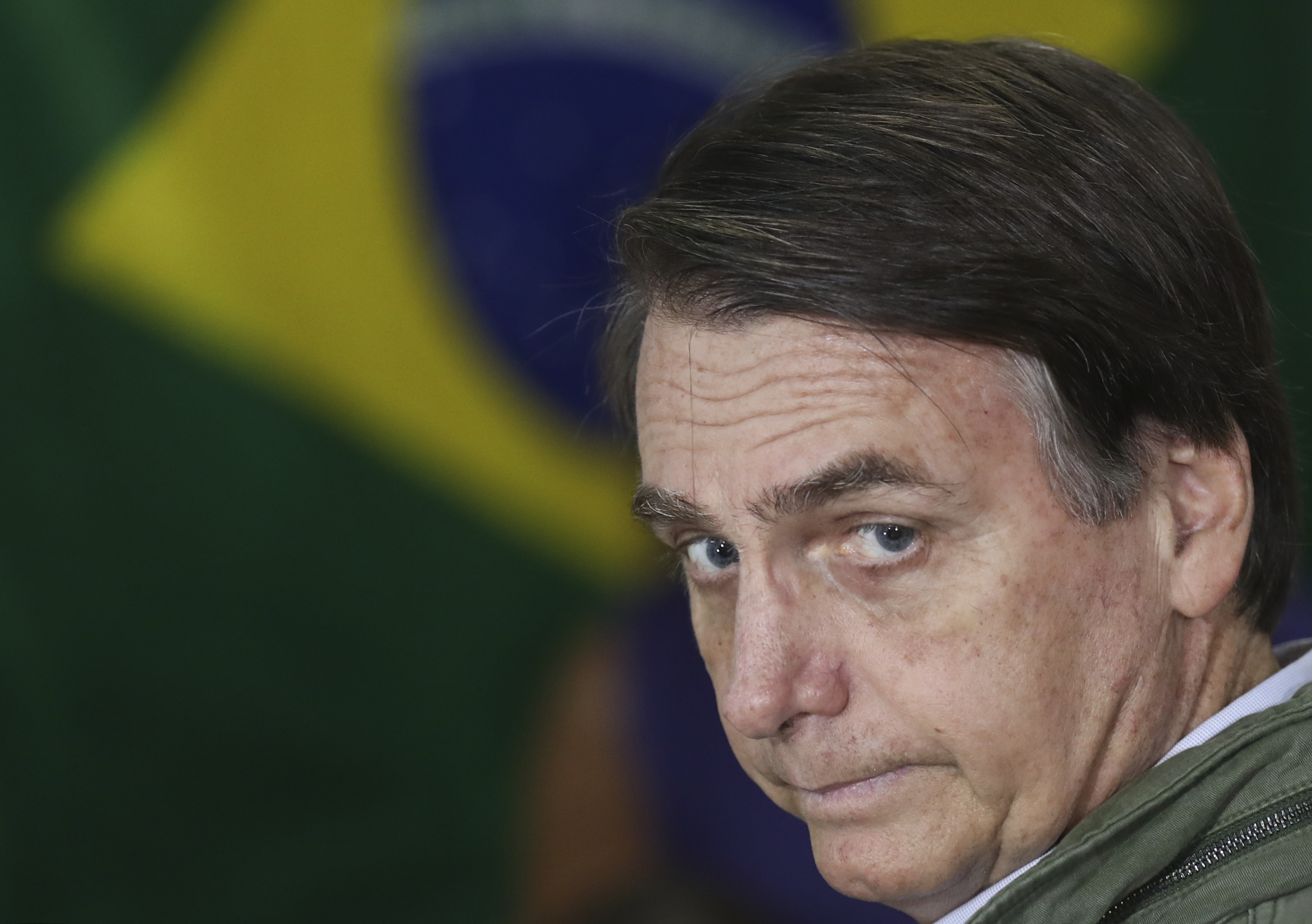
RIO DE JANEIRO, BRAZIL – OCTOBER 28: Jair Bolsonaro, far-right lawmaker and presidential candidate of the Social Liberal Party (PSL), arrives to cast his vote on October 28, 2018 in Rio de Janeiro, Brazil. (Photo by Ricardo Moraes-Pool/Getty Images)
https://www.americasquarterly.org/content/brazil-china-ties-face-test-under-bolsonaro
BY OLIVER STUENKEL | OCTOBER 29, 2018
Jair Bolsonaro’s relationship to China got off to a bad start. Economic and foreign policy advisers will urge a more pragmatic stance.
—–
In March, Brazil’s then-presidential candidate Jair Bolsonaro visited Taipei and tweeted that his trips to “Israel, the United States, Japan, South Korea and Taiwan” had made it clear that he wanted to break with previous Brazilian governments, which had been “friendly with communist regimes.” The Chinese Embassy in Brasília responded with a letter sharply rebuking the candidate. In the following days, my Chinese contacts in government and academia were intrigued, but not particularly worried. I told them Bolsonaro would probably self-destruct long before the first round of voting.
Still, during a visit to Beijing in April, I realized that Chinese analysts where closely tracking the right-wing candidate, who had by then begun to regularly criticize the Middle Kingdom. After all, in contrast to Washington, D.C., where Brazil has never been more than a niche topic, the Chinese government considers its relationship to Brazil to be of great importance, both from an economic and from a political point of view. China’s President Xi Jinping is scheduled to visit Brasília in 2019 for the 11th BRICS Presidential Summit.
In recent years, China has begun to carefully monitor anti-China rhetoric across the world, and policymakers in Beijing readily acknowledge that criticizing China on the campaign trail can be a successful formula to collect votes. The vast majority of those elected, Beijing knows, will embrace a more pragmatic stance once in office, given how important Chinese trade and investment has become for virtually every country in the world. As a Chinese friend and academic half-joked with me in a discussion about China-critic-turned-pragmatist Mauricio Macri of Argentina, “In the end, they all come to Papa Xi.”
Over the past several weeks, as he moved closer to the presidency, most Chinese analysts I spoke to still believed Bolsonaro would embrace a more pragmatic style once in office, particularly once he realizes investment from China (over $20 billion between 2016 and 2017) and trade are crucial to keep Brazil’s economy afloat. The Asian giant has been Brazil’s most important trading partner since 2009, and Brazil’s dependence on China is set to grow further still. So far this year, Brazil’s exports to China stand at around $47 billion – more than twice as much as to the United States. China is responsible for more than one third of sales at Vale, Brazil’s mining giant. Optimists point out that Bolsonaro’s promises to carefully review future Chinese investments to preserve Brazil’s strategic autonomy are unlikely to have a significant short-term impact, since Chinese investors are currently digesting their recent acquisitions, and their investments in 2018 have amounted to less than $2 billion.
Yet it cannot be denied that Bolsonaro’s relationship to China could not have gotten off to a worse start. The frequent criticism of Chinese investors and the Taiwan trip in particular are interpreted in Beijing as a direct threat to Chinese attempts to consolidate its diplomatic influence in Latin America and the Caribbean, where nine of the 17 countries that still maintain diplomatic ties to Taiwan are located. Most recently, the Dominican Republic, Panama and, in late August, El Salvador switched sides, and we can expect several others – including Paraguay – to follow suit soon. Xi is said to be personally invested in going down in history as the Chinese leader who regained control of Taiwan. Beijing has recently become more aggressive abroad to isolate what it considers a renegade island. In July, airline carriers from around the world were pressured to list only Taipei’s airport code and city on their websites, but not the name Taiwan.
Beijing will readily sit down with the Bolsonaro government and discuss renegotiating specific elements of the bilateral trade relationship, including possibilities to provide greater access for Brazilian goods – such as beef – to China’s market. The power asymmetry between the two nations does not imply that Brazil is unable to shape the bilateral relationship in a way that better serves its interests. Continued public anti-China rhetoric, however, is almost certain to have negative economic consequences, and reduce chances to meaningfully engage Beijing. That would be….
Read full article here.








